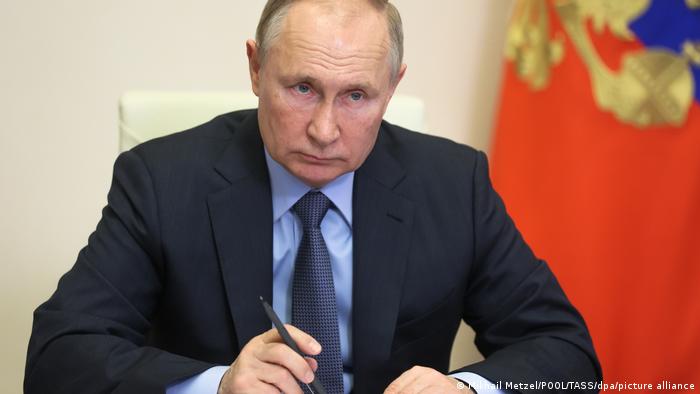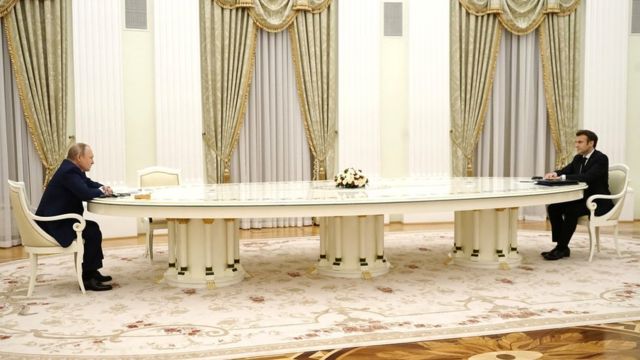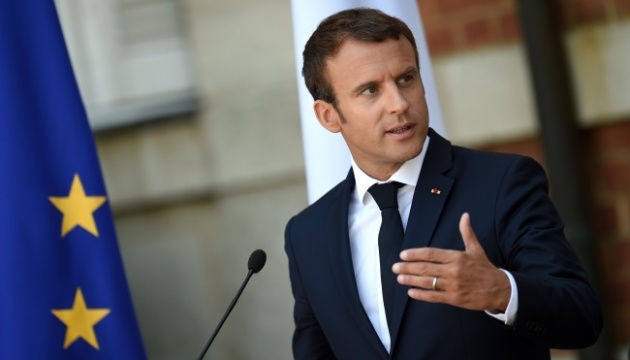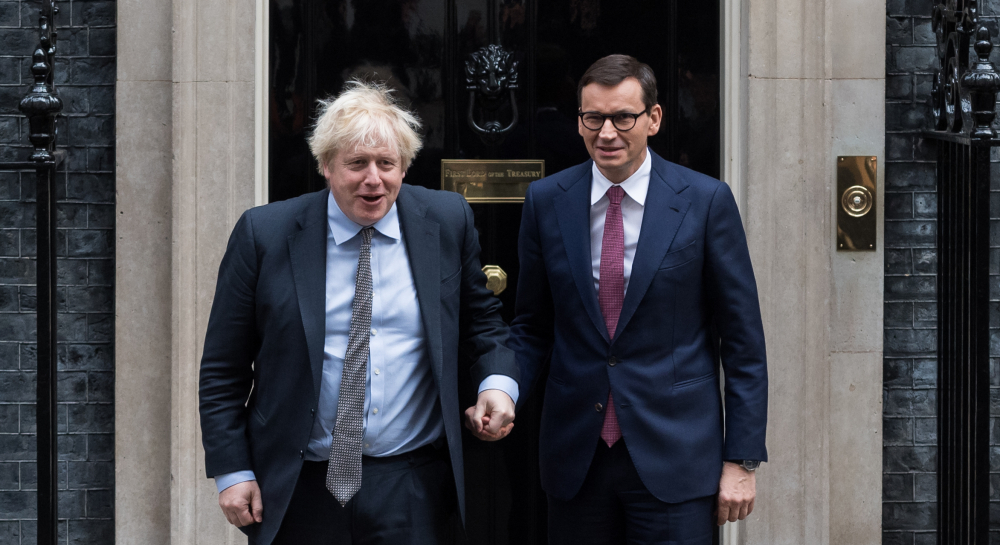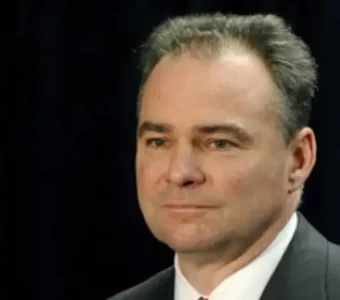What's new in international support of Ukraine: Minsk, Macron, and the friendship of Poles
The world continues to talk about Ukraine and Russia. The latter is further recognized as the aggressor. Top diplomats and presidents of European countries pay visits to Moscow and Kyiv. Some calm down, some support, some panic, but everyone is trying to make some contribution.
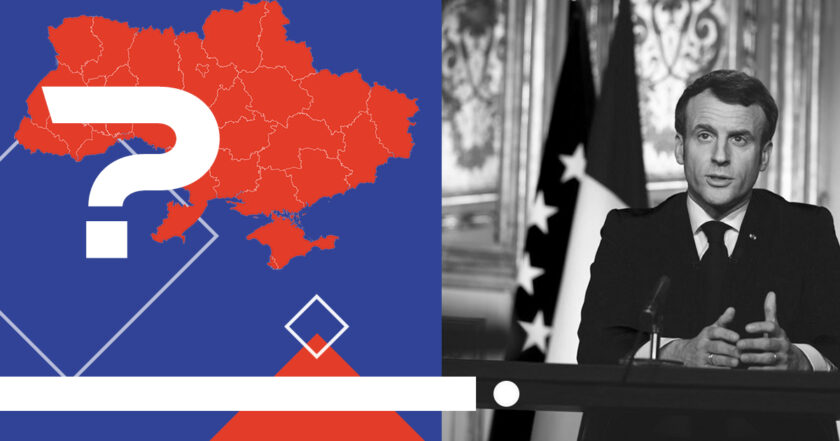
Rubryka analyzes these attempts and tells what has changed in the international political arena in recent weeks.
What is the problem?
Sadistic ambitions of Russian President
Russia continues its hybrid war. It continues to draw weapons to the border with Ukraine, "matches" with the self-proclaimed president of Belarus, complains that no one fulfills its somewhat crazy conditions, and actively spreads fakes, for example, that Ukraine allowed the United States to conduct biological experiments on our soldiers.
The informational space was agitated the most by Putin's mocking address to President Zelenskyy on February 7. It concerned Putin's conviction that Ukraine doesn't abide by the Minsk agreements, although it should. In conclusion, a quote from a song about rape: "like it or not, be patient, my beauty."
Zelenskyy replied that Ukraine was really beautiful, but with "my beauty" Putin overplayed his hand. And the White House said such appeals to rape were outrageous.
What is the solution?
Negotiating with Russia and strengthening Ukraine
Amid everything that is happening, European leaders and top diplomats regularly visit Ukraine. The President of France, the Prime Minister of Poland, the Prime Minister of Lithuania, the Foreign Minister of Germany… The list is long.
But most attention, of course, was paid to Emmanuel Macron's meetings with Vladimir Putin and later with Volodymyr Zelenskyy. Did they bring any practical results? No. But thanks to them, the mood within the Normandy 4 becomes clearer.
How does it work?
"Dedicated to the idea of negotiating with Russia"
This is what Maria Zolkina, an analyst at the Ilko Kucheriv Democratic Initiatives Foundation, says about the French president. The expert says that because Germany is relinquishing its role as chairperson of the Normandy format, France is taking over.
"Macron went to meet with Putin with the understanding that the implementation of the Minsk agreements should be a mandatory element for international detente and de-escalation. He said this the day before and referred to it later. Germany is now stepping back from moderating the Normandy 4. That is why France will have a leading position as a moderato and will form negotiations and try to renew the implementation of Minsk," Maria Zolkina commented.
On the eve of Macron's visit to Ukraine, the media dispersed his statement that the "Finlandization" of Ukraine was "one of the models on the table" to ease tensions with Russia.
This means that Ukraine should make concessions to Russia in exchange for guarantees of peace, refuse to join NATO, and allow Russia to exert some influence on its foreign and domestic policies. Emmanuel Macron later declined, but did he not say so?
"Another important point is Macron's statements, which he later disowned, about Finlandization. Although he denied this, the very idea that collective security should include new formats and new solutions was voiced by Macron in Moscow before. It is unknown at this time what formats Macron proposed to Putin, and if there will be a statement on refusing NATO expansion to the East. Because basically nothing is known about those new models of collective security. But it's clear that now Macron will try to establish himself as the new leader on the European continent and try to find an understanding with Russia.
On the one hand, Macron has proved that he is committed to negotiating with Russia and will not pursue such a tough policy as the United States or London, he will seek compromises. The second, and this is already a risk for Ukraine, is the Minsk agreements. Because if France forces the implementation of the Minsk agreements at the level of the Normandy Four, there will be a lot of traps for Ukraine," the expert explains.
The traps mentioned by Maria Zolkina are that to other countries (Germany and France) Ukraine's concessions on Donbas may seem like a small price to pay for the global detente.
If earlier in Normandy 4 Ukraine, France, and Germany had a consolidated position, and Russia had its own, which allowed working on the formula 3 + 1, now everything can be lost.
"A previous meeting of advisers has shown that the Germans are not so committed to international law and can turn a blind eye to certain negotiations and agreements with Russia. The bottom line is that it may happen that not only the Russians but also the Germans and the French, may pressure Ukraine," said the analyst.
On February 10, a regular meeting of political advisers took place in the Normandy format. It lasted more than 9 hours, but the four didn't reach any joint decisions.
And will we succeed in fixing everything
Positions of other countries
The political situation isn't limited to the Normandy format. While the Ukrainians are questioning the sentiments of France and Germany, other reputable countries are not only supporting us but also handing over weapons and strengthening partnerships with us. This applies in particular to the United States, the United Kingdom, and Poland. Maria Zolkina emphasizes the latter:
"There has been some rapprochement between Poland and Ukraine. This is important because it is the first time that Prime Minister Mateusz Morawiecki has arrived in Ukraine. Those who are immersed in Ukrainian-Polish politics know that the Polish prime minister didn't maintain close intergovernmental contacts. In practice, intergovernmental cooperation between Ukraine and Poland has been very limited, which is why this visit is important because the Russian threat has intensified bilateral cooperation between Ukraine and Poland."
The international narrative of probable scenarios has also changed. If recently the probability of full-scale escalation was estimated as high, now opinions have changed somewhat.
"There has been a slight decline in the way Britain and the United States comment on the threat from Russia. Because the communication conflict between Kyiv and Washington was that Kyiv deliberately downplayed the likelihood of a new invasion scenario, and Washington overestimated. Although both sides adequately agree that there are different scenarios and an outright invasion is not one of the most likely. At least as of today.
The United States and Britain have abandoned such radical assessments that only war shines on us and nothing more. They also comment on more hybrid options for attacking Ukraine. This does not mean that the position has changed, but the degree of tension has decreased. This is a solution to the communication conflict between Washington and Kyiv," Maria Zolkina explains.



